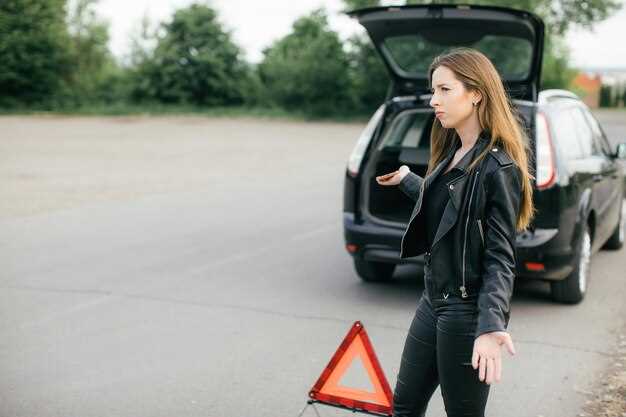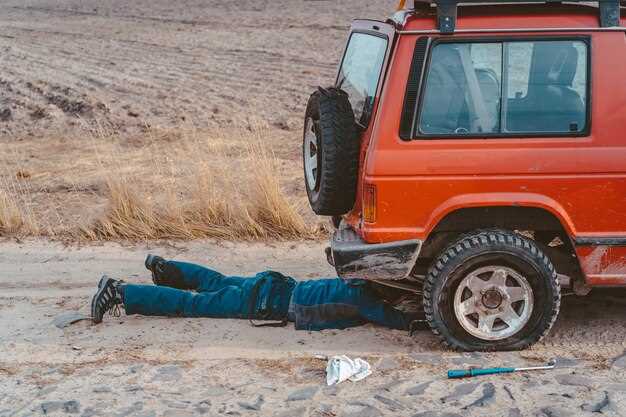How to secure your Jeep for highway towing


Towing your Jeep can be a thrilling adventure, but ensuring it is securely attached is crucial for a safe journey. Whether you are heading to the mountains for an off-road adventure or towing your Jeep behind an RV, proper preparation is paramount. A secure towing setup can prevent accidents and minimize the risk of damage to both your vehicle and the trailer.
When towing a Jeep, it is essential to understand the specific towing capacity of your vehicle. Each Jeep model has its own limitations that must be adhered to in order to ensure safe transportation. Exceeding these limits can lead to hazardous situations on the highway. Always consult your owner’s manual for precise towing guidelines.
Moreover, utilizing the correct towing equipment is integral to the safety of your towing experience. This includes a reliable hitch, appropriate safety chains, and quality towing straps. Properly securing your Jeep not only protects your vehicle but also enhances overall safety on the road. Regular inspections of your towing setup will further ensure that everything functions optimally and can withstand the rigors of highway travel.
By taking these precautions seriously, you can enjoy the open road without worrying about the safety of your Jeep. Understanding the fundamentals of towing and investing in the right equipment will lead to a secure and enjoyable drive. Always remember, preparation is key to a successful and safe towing experience.
Choosing the Right Trailer for Your Jeep Model

Selecting the appropriate trailer for your Jeep is essential for safe towing and optimizing your vehicle’s performance. First, consider the towing capacity of your specific Jeep model. Each model has a designated weight limit, which is crucial for preventing damage and ensuring safe handling on the highway.
Next, identify the type of trailer that suits your needs. For recreational purposes, a small utility trailer might suffice, while those needing to tow heavier loads, like camping gear or off-road vehicles, should opt for a more robust option. Trailers come in various designs such as enclosed, flatbed, or specialized types, each serving different functions.
Equally important is the trailer’s weight. A lightweight trailer not only makes towing easier but also impacts fuel efficiency and overall driving stability. Ensure that the trailer’s weight, when fully loaded, does not exceed your Jeep’s towing capacity. Balance is vital; ensure that the load is evenly distributed to maintain proper handling.
Consider the hitch type required for your Jeep as well. A compatible hitch ensures that the trailer connects securely, reducing the risk of accidents while towing. Additionally, check the trailer’s braking system; for heavier models, a trailer with its own brakes can greatly enhance safety during towing.
Finally, assess any additional features you may need, such as storage options or toolboxes. By taking these factors into account, you can confidently select a trailer that complements your Jeep and meets your towing requirements effectively.
Essential Towing Equipment for Safety and Stability

When preparing for towing your Jeep, having the right equipment is crucial to ensure safety and stability on the highway. First and foremost, a high-quality towing hitch is essential. A strong hitch properly matched to your Jeep’s specifications will securely attach the trailer, minimizing the risk of detachment during transit.
Next, consider using a safety chain. These chains provide an additional layer of security. In the event of a hitch failure, safety chains keep the trailer connected to your Jeep, preventing it from careening uncontrollably.
Towing mirrors are another vital component. They expand your field of vision, allowing you to monitor the trailer and surrounding traffic effectively. This is especially important when changing lanes or making turns while towing.
A brake controller is indispensable for towing larger loads. It synchronizes the trailer’s brakes with your Jeep’s braking system, ensuring smooth deceleration and reducing the stopping distance. This enhancement significantly increases safety on the highway.
Additionally, having load distribution systems helps to maintain proper balance between the Jeep and the trailer. These systems distribute weight evenly, preventing swaying and enhancing overall stability while towing.
Finally, tire pressure monitoring is crucial. Ensure that both your Jeep and the trailer are equipped with properly inflated tires. Under-inflated tires can lead to blowouts and significantly impact towing performance.
Investing in these essential towing equipment pieces will not only enhance safety while towing your Jeep but also provide peace of mind during your travels on the highway.
Checklist for Preparing Your Jeep Before Towing
Before hitting the road with your Jeep and trailer, it’s essential to ensure everything is in optimal condition. Start by checking the trailer hitch for any signs of wear or damage. Make sure it is securely attached to the Jeep’s receiver, and verify that all bolts are tight.
Next, inspect the wiring harness for the trailer lights. Confirm that the connections are clean and free from corrosion. Test the lights to ensure they are functioning properly, including brake lights, turn signals, and running lights.
Examine the trailer brakes, if equipped. Ensure they engage smoothly and respond appropriately when the Jeep brakes are applied. Adjust the brake controller settings if necessary.
Check the trailer tires for proper inflation, tread depth, and any signs of wear. A flat or damaged tire can lead to serious issues on the road. Don’t forget to check the Jeep’s tires as well, ensuring they are adequately inflated and in good condition for towing.
Verify the load distribution on the trailer. Ensure it is balanced to prevent swaying during transit. Properly secure all items and ensure they are not exceeding the weight limit of both the trailer and the Jeep.
Fifth, don’t overlook the Jeep’s fluids. Check the oil, transmission fluid, and coolant levels to ensure they are at optimal levels before embarking on your journey.
Finally, ensure that you have the correct towing gear, such as a safety chain, tow mirrors, and any necessary tools. Equip yourself with a roadside emergency kit for unexpected situations that may arise during your trip.
